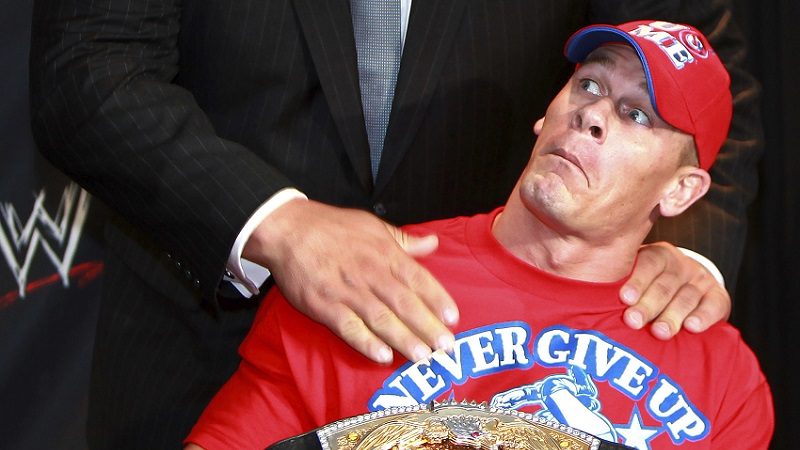
2010 Was Weird
It’s fair to say that 2010 was a weird time in WWE. From The Nexus’ initial dominance and their rapid downfall to the lengthy storyline involving The Undertaker’s vegetative state, the year featured plenty of content that left viewers scratching their heads. Heck, a 52-year-old Bret Hart won the WWE United States Championship, which shows that literally anything could happen in 2010. But when it comes to WWE creative, there’s one truth most fans can agree on: though the company can pretty much do whatever it wants on TV, that doesn’t mean they should.
Edge’s booking during his feud with the World Heavyweight Champion Kane is a shining example of that truth. As a lovely video package before their match on the show reminds us, Edge literally kidnapped Paul Bearer, who was almost sixty years old at the time, and proceeded to torment and humiliate him. Viewers were expected to cheer this horrifying behavior, which continued when Edge brought a wheelchair, supposedly belonging to Bearer, to the ring with him on this show. When you look at this storyline from Kane’s perspective, it’s an even harder pill to swallow. Edge took the man’s father captive and repeatedly brutalized him. Yet Kane, simply a concerned son, was made out to be the bad guy.
The match itself was nothing to write home about, aside from the controversial finish. The referee counted a pin when both men technically had made a cover, so though Edge was initially declared the victor, the official reversed his decision. Enraged, The Rated-R Superstar attacked Kane, forced him into the wheelchair, and sent him crashing through the barricade. Clearly, the writing for Edge’s supposedly babyface character was morally questionable at best.

Cena Steals The Show Without Wrestling
The main event was loaded with stakes, as Randy Orton defended the WWE Championship against Wade Barrett of The Nexus. John Cena, who had been forced to join the group, served as the match’s special referee to add even more pressure to the situation. Per the match’s stipulation, an Orton victory would lead to Cena’s termination from WWE, but a Barrett win would free Cena from his membership to The Nexus. Ever the hero, Cena decided to call the match right down the middle.
Cena’s presence into the match added a lot of star power to the main event, but in many ways the special guest referee overshadowed the competitors. Throughout the bout, the story clearly centered on Cena’s moral dilemma, so Orton and Barrett often like like secondary players on this stage. To be fair, the narrative was certainly compelling, especially from the perspective of the target audience, the children who idolized Cena. Many of these fans likely bought into the idea that WWE would actually fire their top star, so the match’s conclusion, a decisive victory for Orton, was fairly surprising in that regard. The production crew really sold the aftermath, too, as the last several minutes of the show focus on Cena’s lengthy farewell to the live crowd.
Of course, Cena wasn’t actually fired. In a matter of weeks, Cena was “back,” and he quickly “earned” his job back. While the subsequent direction of Cena’s feud with The Nexus was somewhat lackluster, this main event did what it was meant to; it told a fascinating story about a man who finds himself in a no-win situation and remains true to himself despite the guaranteed consequences of his actions.






